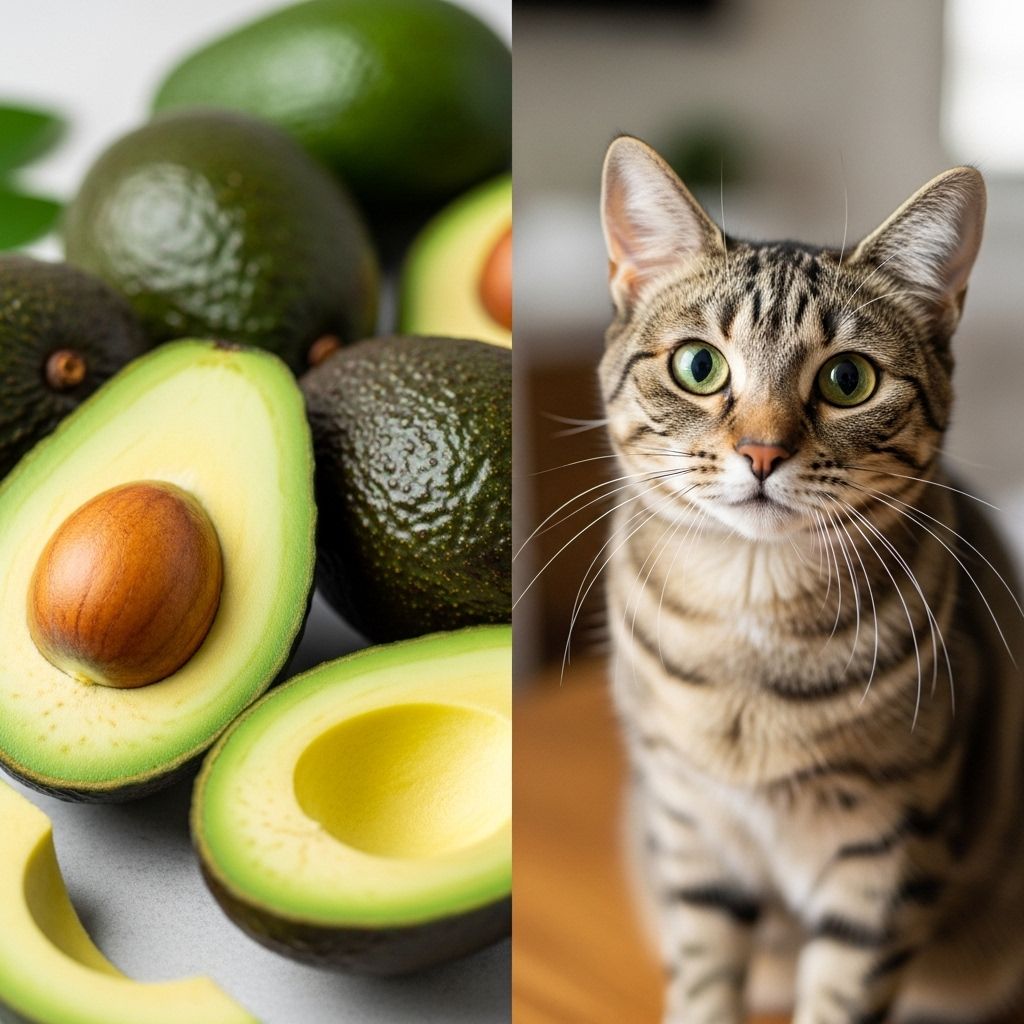Can Cats Eat Avocados: Risks, Benefits & Expert Advice
Protect your cat by knowing which avocado parts are harmful and why guacamole is unsafe.

Can Cats Eat Avocados? Everything Cat Owners Need to Know
Avocado toast may be a modern favorite among humans, but as a cat owner, you might wonder: Can cats safely eat avocados? While avocados are packed with nutrients that benefit people, their effect on pets is very different. This guide delves into the safety, potential benefits, toxic risks, and expert recommendations surrounding avocados and feline health.
Understanding Avocado: What’s Inside?
Before sharing a bite with your furry friend, it’s useful to know what makes an avocado unique:
- Rich in healthy fats (primarily monounsaturated fats used as healthy oil in human diets)
- Contains dietary fiber and vitamins such as E, C, potassium, and B-vitamins
- Protein source one of the few fruits with notable protein content
- Persin: a naturally occurring fungal toxin unique to avocados
While these nutrients are great for humans, cats being obligate carnivores digest and utilize food very differently.
The Big Question: Can Cats Eat Avocado?
In short: Small amounts of plain avocado flesh are not likely to be toxic to most cats, but avocados also pose several risks. Parts of the plant specifically the skin, pit, leaves, and stem
Read full bio of Shinta












